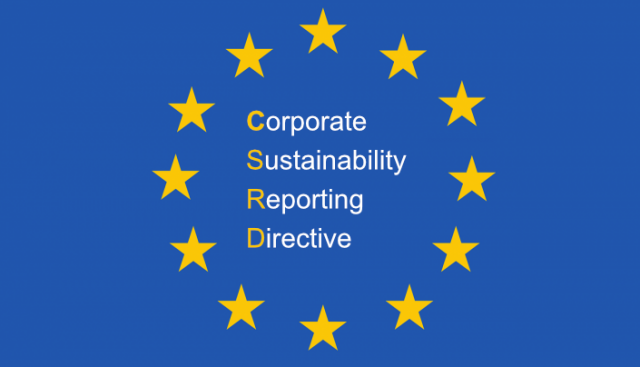The new EU Corporate Sustainability Reporting Directive (CSRD) will replace the Non-Financial Reporting Directive (NFRD) 2014/95/EU. The CSRD will cover 49,000 companies across Europe, compared to 11,000 reporting under the NFRD. In the Czech Republic, the number of companies will increase from 25 to 1,500.
The change of name is welcomed, underlining that sustainability is part of financial matters and should therefore be given the same importance. The new draft directive will allow for a better flow of information on sustainability in the corporate world. Above all, reporting will be consistent so that financial firms, investors and the general public can work with more reliable and comparable sustainability data.
So what are the expected new conditions?
- All large companies (entity meeting 2 of the following 3 criteria: net turnover of over EUR 40 million, more than 250 employees, balance sheet assets greater than EUR 20 mil.) and all publicly traded companies (excluding publicly traded micro companies) are now included.
- It mandates "double materiality" reporting, which means reporting on how sustainability topics affect the company and its financial value (internally), but also how the company affects society and the environment (externally).
- Companies will have to report according to new EU sustainability reporting standards, which are now being developed by the European Financial Reporting Advisory Group (EFRAG). Companies will no longer have to wonder about which reporting framework or standard to choose.
- Audit – sustainability information will be subject to verification. Temporarily, only verification will be required, which provides a lower level of verification than an audit of financial information. However, in future verification will be replaced by an audit.
- Companies will have to disclose sustainability information in a single annual report and this report must be in a machine-readable format so it can be included in the EU single access point database. This process will promote greater transparency and facilitate benchmarking and analysis of the data.
- Companies are expected to report data for the first time in 2024, covering 2023.
- Publicly traded SMEs (small and medium sized enterprises) will have 3 extra years before they must participate.
It might seem like there is plenty of time, but preparation can be challenging. Companies should therefore start preparing for this type of reporting as soon as possible, ideally in mid-2022 when the first draft standards for these reports will be submitted.
Companies will need to:
- consider how they identify and collect data on sustainability,
- decide how they manage environmental, social and governance (ESG) risks, set targets and measurable indicators,
- provide information that assesses the past period but also informs future plans and strategies,
- think about short-, medium- and long-term planning,
- include both qualitative and quantitative information,
- report with regard to the whole value chain.
If companies have not yet carried out these activities, it will be advisable to prepare everything as soon as possible.
Clear data on sustainability will be a decisive factor in winning contracts, clients, as well as grants and loans. Not being prepared will leave companies without the ability to obtain external resources for their business. CSRD reporting will be crucial for all companies that want to secure competitiveness and capital for their long-term market performance.
How does the Directive fit into the wider context?
The Directive builds on the EU's efforts to move towards a climate-neutral economy. It supports the EU Green Deal and is part of the EU's Sustainable Finance Action Plan, which helps to drive private investment towards sustainable business practices and deliver on the Green Deal commitments. The Green Deal in turn addresses the requirements arising from the Paris Agreement on Climate Change and the UN 2030 Agenda for Sustainable Development (meeting the 17 Sustainable Development Goals - SDGs).
Successful implementation of the CSRD and the ability of companies to provide clear sustainability information will therefore be a prerequisite for the implementation of the EU Sustainable Finance Action Plan, the Green Deal and the Paris Agreement itself.
Paris Agreement -> Green Deal -> Sustainable Finance -> Sustainability Reporting Directive (CSRD)

